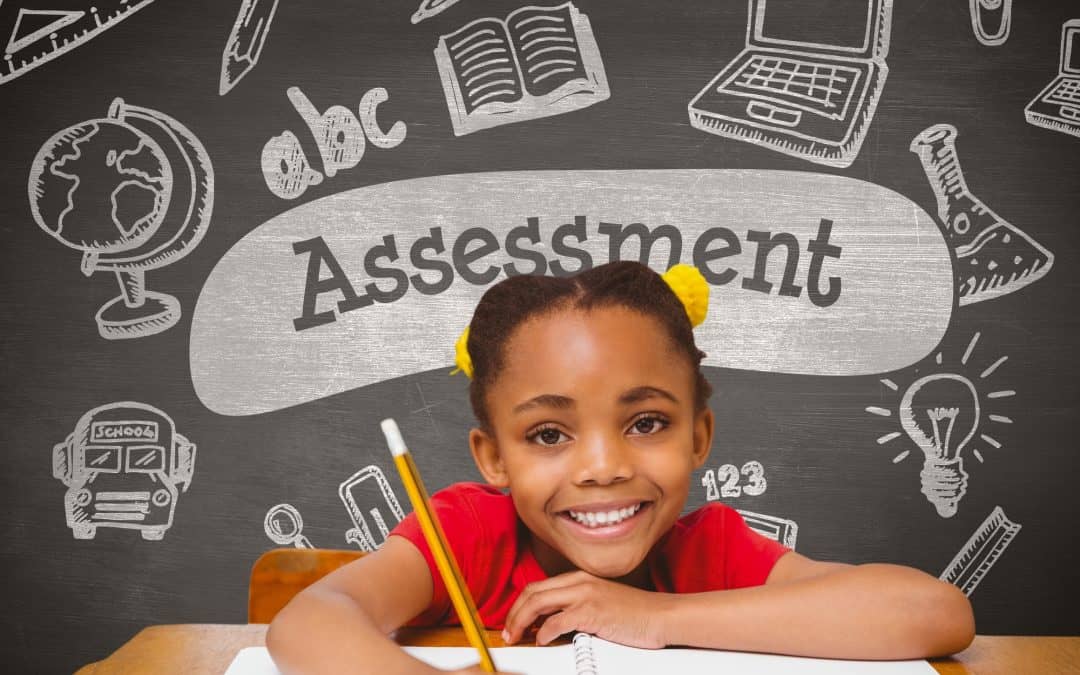Any parent is likely familiar with standardized testing for their children. Once a year, our kids go through standardized testing, sometimes known as student assessments. The testing evaluates learning basics and can be an important tool for both parents and teachers. Knowing what a child knows allows us to better tailor their education for the next year. The same is true of other types of assessment testing. Many different types of assessments can give a clear picture of a child’s mental and emotional needs.
Assessment Testing for Mental Health
Assessing where a child is on their educational and social journey is vital. A full psychoeducational evaluation and assessment testing provide a bridge between what your child is learning and where they are in other important growth stages in their life. The American Psychological Association recommends these evaluations because they allow, “a psychologist to see the full picture of a person’s strengths and limitations.”
In order to better understand your child’s unique blend of strengths and areas of improvement, the psychoeducational evaluation is an essential part of the assessment process. There are four common types of evaluations. We provide a comprehensive overview of these evaluations online for your reference.
As a quick overview, the four common types of psychoeducational evaluations are:
- Cognitive – assesses how a child learns and processes information
- Achievement – assesses a child’s individual academic performance.
- Behavioral – assesses a child’s ability to regulate emotion and executive functioning skills.
- Adaptive – gives insight into a child’s independent functioning.
Each evaluation provides an important picture of your child and helps us create a guide to growth and learning for their future.
What to Expect with Psychoeducational Assessment Testing
As a parent, you may be asking yourself, “Why should I have my child tested?” We recognize that a psychoeducational evaluation is an investment for a family. A psychoeducational evaluation is completed with the goal of understanding a child’s unique profile of strengths and weaknesses. This comprehensive assessment allows the psychologist to create targeted strategies, goals, interventions, and accommodations aligned with the child’s needs to help them be their most successful selves.
The process for a psychoeducational evaluation begins with a consultation between the parent and a mental health professional. This consultation allows parents to express any specific concerns and goals for their child’s well-being. Together, the parent and the clinician will create a targeted plan of action to proceed and decide what type of psychoeducational assessment testing should be done.
Often, the first assessment done is the achievement assessment, so everyone can better understand any possible gaps in learning your child is experiencing. This evaluation helps determine the need for educational interventions and helps create a solid base for the remaining psychoeducational evaluations.
Where the clinician goes from there depends on your child’s needs and goals. If we have a clear picture of gaps in learning, a cognitive assessment can help us take the next step to determine how your child learns and why they might be struggling in a certain area. This may be followed by a behavioral assessment to help us learn if there are any attention or emotional concerns that may hinder your child’s education. Finally, we may look at an adaptive functioning assessment to determine how able your child is to function independently to help themselves grow and learn.
Whatever road assessment testing takes us on, you can be assured that the destination is a better understanding of how your child operates and learns, and how you can provide them with the tools they need to grow.
Scheduling Assessment Testing
The importance and value of psychoeducational assessment testing is evident. According to the American Foreign Service Association (AFSA), an organization that provides support to US foreign service members and their families as they adjust to the many changes in their lives, the benefits of psychoeducational evaluations are clear. An article in the Foreign Service Journal, produced by the AFSA, outlines the benefits and goals of assessment testing. The article reads,
“… struggles may occur early in a child’s development, manifested as difficulty understanding directions, learning to read or managing social interactions … despite assistance, these struggles may persist, leaving parents, children and teachers feeling frustrated or helpless. Under those circumstances, a psychoeducational evaluation may open the door to greater understanding of the child by everyone involved and help point the way toward solutions.”
As with any mental wellness care, assessment testing and preventative care are a commitment toward the betterment of your child’s health and well-being. We know that those commitments aren’t always easy, especially when you as a parent have no or very little community support. At Herrera Psychology, our mission is to bridge that gap and give you the support you need. We work to provide mental health services for children and families via schools and nonprofit organizations, providing psychoeducation testing whenever it’s needed. To learn how Herrera Psychology can help, or to schedule your child’s assessment testing, contact us here.


